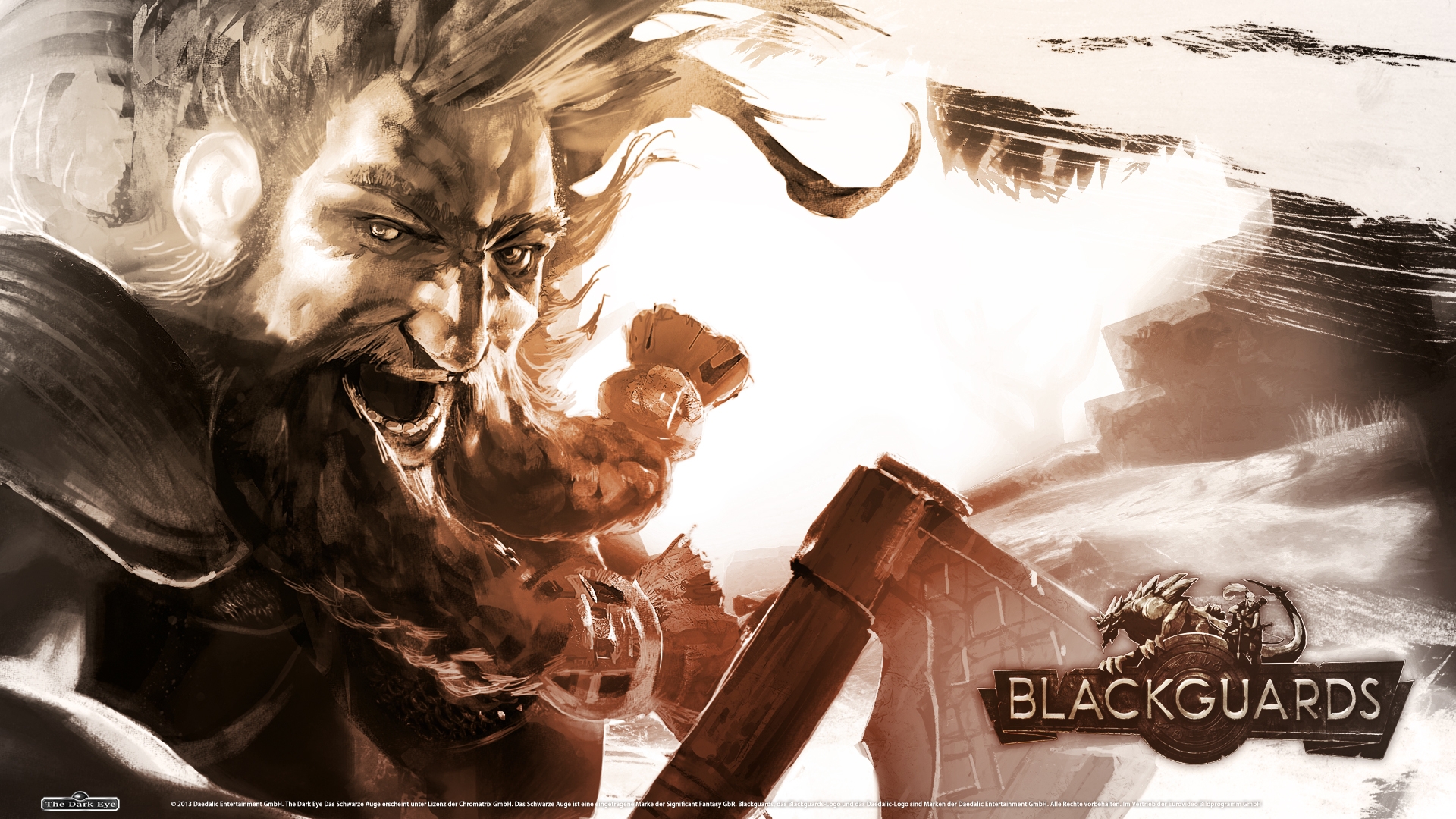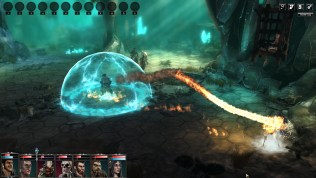The dictionary defines a blackguard as either either a noun or a verb. The noun describes a Blackguard as an unprincipled contemplative person or scoundrel; the verb means to ridicule or denounce with abusive language.
It’s telling then that German games company Daedelic Entertainment uses the term as the title of their latest game - a turn-based strategy RPG about Blackguards - as described by the noun.
Unfortunately it’s also a title which I would like to blackguard, using the verb.
The tagline of the game is as follows: “What happens when the only hope of a threatened world lies not with heroes in shining armor, but is placed in the hands of a band of misfits and criminals?”
These self-described misfits and criminals make for generic and uninteresting characters at best, and caricatures at worst, making the land of Aventuria (which itself sounds more like an amusement park rather than a wholly realized fantasy world) a bland, boring experience.
To call the game a ‘Strategy RPG,’ as the developer does, is a huge misnomer. Based on the popular German RPG The Dark Eye - a game that outsells Dungeons & Dragons in the German Market - Blackguards is unfortunately all strategy and no RPG. While it may pull its foundations from a pen-and-paper RPG, it only exports the combat and not what makes pen and paper RPG’s so interesting in the first place: the world building, character development and the creation of party dynamics.
There’s nothing in the way of exploration; text boxes only serve to lead you to the next quest, rather than develop the characters or universe in any meaningful way. Really, there’s no role-playing to be found in Blackguards unless you count the leveling up of skills, which in itself is a chore due to an unintuitive menu design that will have even the most seasoned pen-and-paper RPG veteran scrounging around for the most useful skills.
Still, while there might not be much RPG, there is plenty of strategy to be had. Fans of tactical games like XCOM and Shadowrun Returns will be able to put up with the mechanics without much issue. While the system doesn’t feel quite as fleshed out as either of the aforementioned titles, it seems likely that the game strictly relies on The Dark Eye rules, which just don’t seem to correctly translate to the video game sphere. The battle maps do focus on a huge variety, with over 190 playable settings, but these all seem to run together somewhat due to the art direction of the game.
To give an example of the combat mechanics, you can move and then attack, but not vice-versa, which seems a bit dated when it comes to to strategy RPGs. As a result, there’s no conceivable way to just wait for someone to cross through your attack zone until you pick up the ‘attack of opportunity’ skill, which can’t be done until later in the game. To make matters even more frustrating, every attack - even from the most seasoned warrior to the lowliest of enemies - has a chance to miss, and it often seems like characters miss more than they hit, even when the attack rating says that you have a 90% hit chance.
To add to the frustration, there’s no mid-battle save option either, so you can’t save and attack and repeat. Unforgiving games can be interesting, but Blackguards is of the variety that makes its save system and menu more ruthless and untouchable than its various monsters and villains.



